StableNet® Blog
Regular posts on all things StableNet® related from a sales, techie, or marketing perspective

Features, trends and new product development
Efficiency, Scalability and Innovation: The Importance of Increasing Modularization for StableNet® Development
Network management software is tasked with oversight of complex network infrastructures comprised of a wide array of vendors, technologies and innovations. Artificial intelligence and machine learning, novel approaches to data visualization, the proliferation of IoT, telemetry… the list of tasks for a truly holistic and integrative solution are daunting indeed. Traditional monolithic software architectures, once the cornerstone of network management solutions, certainly have their place in providing straight-forward software platforms but are increasingly proving to be inadequate in meeting the demands of modern networks. Enter modularization – a paradigm shift for network management software by breaking it down into smaller, more manageable components.
In this blog post, we will explore the myriad benefits of modularization, focusing on its ability to simplify updates, foster specialized expertise, and pave the way for a more adaptable and forward-thinking approach to our unchanging commitment: the never-ending improvement of StableNet®.

Simplified Updates: Win-Win for Developers and Users
One of the most significant advantages of modularization lies in its ability to simplify updates. With a typical annual release of StableNet® receiving upwards of ten “Service Packs”, enhancements to our platform must be introduced while ensuring that the underlying foundation remains stable. In a monolithic architecture, updating the software often entails making changes to the entire codebase, which can be a time-consuming and error-prone process. While there is value in bundled solutions, with modularization, updates become much more streamlined and efficient.
Each module within a modularized system is self-contained, meaning that changes made to one module do not necessarily affect the others. This granular level of control allows network administrators to update individual modules independently, without disrupting the entire system. Whether it’s patching security vulnerabilities, updating end-of-life information, introducing new features, or optimizing performance, modularization empowers our StableNet® team to deploy updates with precision and confidence.
By decoupling modules from one another, modularization also reduces the risk of unintended consequences. In a monolithic architecture, a change made to one part of the codebase can have unforeseen repercussions elsewhere. This is sometimes inevitable and indeed codebases should be regularly checked and updated. However, in a modularized system, the impact of updates is confined to the specific module being modified, minimizing the potential for system-wide disruptions.
Specialized Expertise: Empowering Development Teams to be Their Best
Another compelling benefit of modularization is its ability to foster specialized expertise within development teams. In a monolithic environment, developers are often required to have a broad understanding of the entire codebase, making it challenging to develop deep expertise in any one area. There is value in developers having an overview of the entirety of the software. However, with modularization, teams can specialize in individual modules, allowing them to focus their efforts and become true subject matter experts.
By concentrating their efforts on specific modules, StableNet® developers can gain a deeper understanding of the underlying technologies, design patterns, and best practices within their domain. This specialization not only enhances the quality of the code but also accelerates problem-solving and innovation. When each team member is a specialist in their respective module, they can collaborate more effectively, share insights, and push the boundaries of what’s possible in network management software.
With support for Netconf/Yang, telemetry, Wi-Fi performance oversight, etc., StableNet® developers continue to build their knowledge-base and incorporate market developments quickly and proficiently. Specialized expertise enables Infosim® to adapt more quickly to changing requirements and emerging technologies. Whether it’s integrating with new hardware, implementing industry-specific protocols, or optimizing performance for specific use cases, our specialized teams are better equipped to tackle complex challenges with precision and efficiency.
Forward-Thinking Approach: Paving the Way for Future Innovation
Beyond its immediate benefits, modularization represents a forward-thinking approach to software development that is well-aligned with the demands of the digital age. In today’s rapidly evolving landscape, organizations must be agile and responsive to change. Monolithic architectures, with their rigid structure and limited scalability, often struggle to keep pace with the pace of innovation. While dynamism and scalability can be built in to a certain extent, it cannot achieve the same impact as a modularized system.
Modularization provides a foundation for continuous evolution and growth. By breaking down software into smaller, reusable components, we are able to adapt more quickly to emerging trends, technologies, and market demands. Need to integrate with a new cloud platform? Simply develop a module for it. Want to add support for the latest IoT devices? Build a module that handles device management. With modularization, the possibilities are virtually limitless.
Furthermore, modularization encourages a culture of innovation and experimentation within development teams. By empowering our teams to create and maintain their own modules, we can tap into the collective creativity and expertise of our very skilled StableNet® developers. This bottom-up approach to innovation not only fosters a sense of ownership and empowerment but also accelerates the pace of progress.
A Final Thought: Embracing the Modular Revolution
By breaking down software into smaller, more manageable components, Infosim® can streamline development, accelerate innovation, and stay ahead of the curve in an ever-changing world. By simplifying updates, fostering specialized expertise, and embracing a forward-thinking approach to software development, we continue to demonstrate our commitment to rewarding StableNet® users with continuous improvements to our automated network and service management platform.
As the demands of modern networks continue to evolve, it’s clear that traditional monolithic architectures are no longer sufficient as an end point. This is why, starting with our most recent annual release StableNet® 24, our partners and customers have started receiving information regarding the newest modules and module enhancements. Indeed, this modularization will only continue to grow stronger and stronger in the foreseeable future. We are convinced that, to thrive in today’s dynamic landscape, organizations must embrace the modular revolution and harness the power of modularization to build software solutions that are agile, adaptable, and future-proof.

Dr. David Toumajian
Director of Marketing @ Infosim® GmbH & Co. KG
Software
Made in Germany
